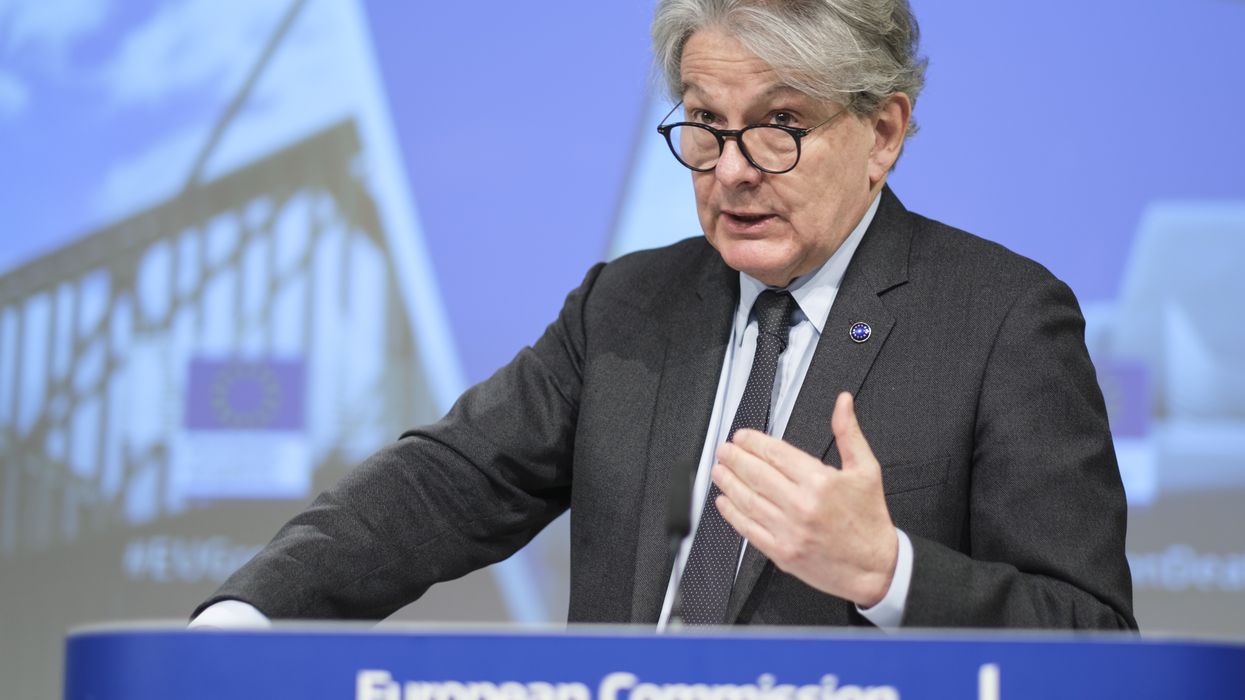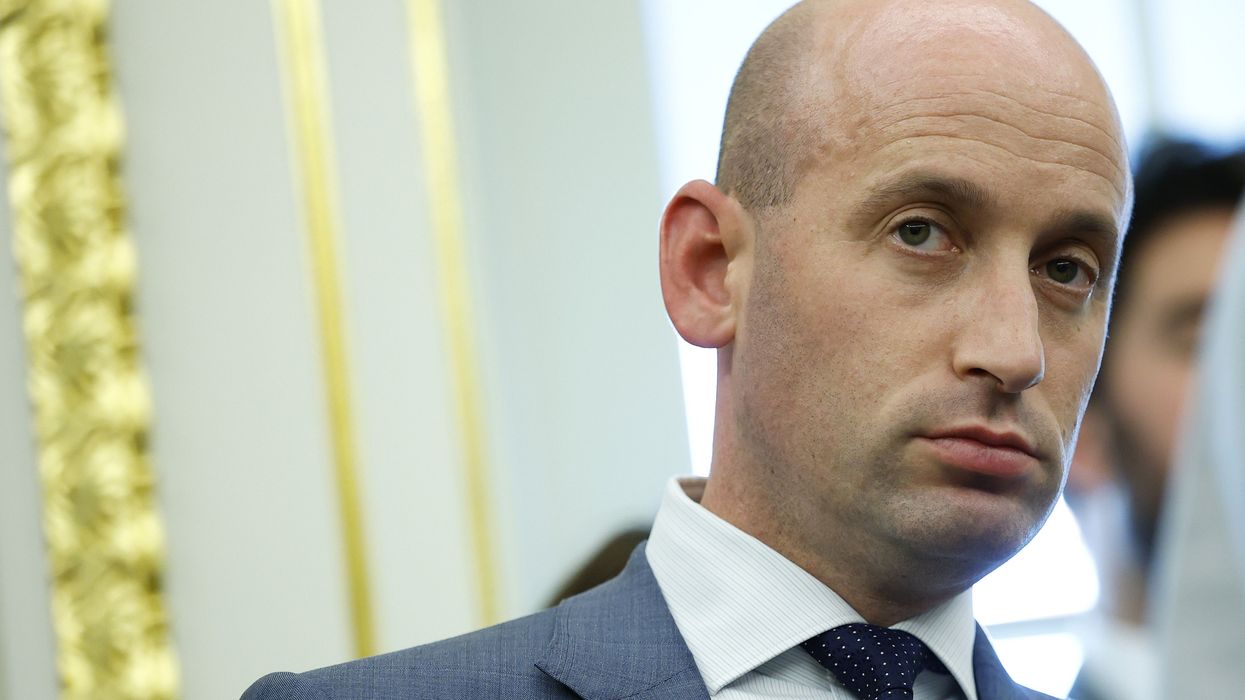April, 09 2009, 09:38am EDT

For Immediate Release
Contact:
Emily Schwartz Greco 202-297-5412 (m); emily@ips-dc.org
Chuck Collins 617-308-4433 (m); chuckcollins7@mac.com
Tax Day Report: Documents Burden Shift from Ultra-Rich to the Rest of Us Identifies $450 Billion in Hikes to Fund Recovery
America's
highest-income taxpayers, analysts at the Institute for Policy Studies
detail in a new Tax Day report, pay a staggeringly smaller share of
their incomes in taxes than did America's rich back in the 1950s.
WASHINGTON
America's
highest-income taxpayers, analysts at the Institute for Policy Studies
detail in a new Tax Day report, pay a staggeringly smaller share of
their incomes in taxes than did America's rich back in the 1950s.
"Since
1955," notes John Cavanagh, director of the Institute for Policy
Studies, "we've seen a tax shift of truly epic proportions. Now more
than ever, the ultra-rich need to contribute their fair share to help
our economy get back on track."
America's
top 400 taxpayers in 1955 paid three times more of their income in
taxes, the new Institute for Policy studies report points out, than the
top 400 of 2006, the most recent year with IRS data available.
If
the most affluent 400 of 2006 had paid as much of their incomes in
taxes as the top 400 in 1955, the federal treasury would have collected
an additional $35.9 billion more in revenue in 2006 just from these 400
ultra-rich individuals.
The
report found that the 139,000 U.S. taxpayers who made over $2 million
in 2006 averaged $5.9 million in income. If these individuals had paid
taxes at the same rate as their 1955 counterparts, the federal treasury
would have collected, in 2006, an additional $202 billion.
The report,
"Reversing the Great Tax Shift: Seven Steps to Finance Our Recovery
Fairly," offers proposals that would raise $450 billion of revenue to
support economic recovery. These include:
- Introducing a modest financial transaction tax that will chill speculation and generate $100 billion a year.
- Implementing an estate tax reform that taxes inheritances over $2 million at progressive rates.
- Setting an emergency tax rate on extremely high incomes that would generate over $60 billion a year.
- Eliminating the tax preference on capital gains and dividend income, generating $80 billion.
- Closing overseas tax havens for individuals and corporations, generating $100 billion.
- Scrapping $18 billion in tax breaks that subsidize excessive CEO compensation.
"By
seriously taxing the top, as we did in the 1950s, we could raise the
revenues we need to better invest in infrastructure, education, and
retrofitting our energy system," says Chuck Collins, an IPS senior
scholar and co-author of the new IPS brief. "Appropriately targeted,
higher taxes on the top would also serve to dampen the speculative
frenzy that has cratered our economy."
Download the report at: https://www.ips-dc.org/reports/#1207
The briefing paper's co-authors are available for comment and Tax Day related interviews:
John Cavanagh is the Director of the Institute for Policy Studies, and the author, with Robin Broad, of Development Redefined: How the Market Met its Match <https://www.ips-dc.org/books#704> . He attended the Fiscal Summit at the White House on Monday Feb. 23. jcavanagh@igc.org; 202-297-4823 (m)
Chuck Collins
is an Institute for Policy Studies senior scholar and director of its
Program on Inequality and the Common Good. He is co-author, with Bill
Gates Sr., of Wealth and Our Commonwealth: Why America Should Tax Accumulated Fortunes (Beacon Press, 2003). chuckcollins7@mac.com; 617-308-4433 (m)
Sam Pizzigati, an IPS associate fellow, edits Too Much, on online weekly on excess and inequality. He is author of Greed and Good: Understanding and Overcoming the Inequality That Limits Our Lives (Apex Press, 2005). editor@toomuchonline.org ; 301-933-2710 (o)
Cavanagh, Collins, and Pizzigati are all co-authors of the newly published Mandate for Change: Policies and Leadership for 2009 and Beyondwww.mandate4change.org (Lexington Books, 2009).
Institute for Policy Studies turns Ideas into Action for Peace, Justice and the Environment. We strengthen social movements with independent research, visionary thinking, and links to the grassroots, scholars and elected officials. I.F. Stone once called IPS "the think tank for the rest of us." Since 1963, we have empowered people to build healthy and democratic societies in communities, the US, and the world. Click here to learn more, or read the latest below.
LATEST NEWS
'Beyond Dehumanizing': ICE Docs Expose Plan to Hold 80,000 People in Warehouses
The proposal does not treat detainees "as people but just things to be warehoused like Amazon packages," said one critic.
Dec 24, 2025
Eight months after the acting director of US Immigration and Customs Enforcement saidd at a border security conference that the Trump administration aims to carry out its mass deportation operation with the same efficiency as Amazon's package deliveries, a draft document from ICE officials on Wednesday provided never-before-seen details of how the agency plans to do that using massive warehouses repurposed to hold tens of thousands of people.
The Washington Post reported on a draft solicitation document, a version of which ICE plans to send to private detention companies this week.
The proposal calls for contractors to help renovate industrial warehouses across the country, setting each up to hold up to 10,000 people detained by immigration agents at a time—albeit in facilities that will likely have poor ventilation, climate control, plumbing, and sanitation systems.
Warehouses, said physician and journalist Dr. Carolyn Barber, "are built for boxes, not humans."
🧊 WAREHOUSING HUMANS 😲ICE plans to herd their captives "into one of seven large-scale warehouses holding 5,000 to 10,000 people each, where they would be staged for deportation." www.washingtonpost.com/business/202...
[image or embed]
— JJ in DC (@jjindc.bsky.social) December 24, 2025 at 7:43 AM
ICE aims to modify the warehouses and create separate housing units with showers and bathrooms, dining areas, medical units, recreation areas, and law libraries, according to the document.
The agency's new facilities will “maximize efficiency, minimize costs, shorten processing times, limit lengths of stay, accelerate the removal process, and promote the safety, dignity, and respect for all in ICE custody," the solicitation said.
But considering acting ICE Director Todd Lyons' comment last April that the administration should treat deportations "like a business... Like [Amazon] Prime, but with human beings," rights advocates said the plan to house people in massive storage facilities was "beyond dehumanizing."
"It is as if they don't see immigrants as people but just things to be warehoused like Amazon packages," said Philip Mai, co-director at the Social Media Lab at Toronto Metropolitan University.
ICE and other federal agencies have been transporting detainees around the country this year to whichever detention facilities have space, but under the new plan, seven large warehouses in Louisiana, Virginia, Texas, Arizona, Georgia, and Missouri would be used as deportation "staging" facilities for 5,000-10,000 people each.
Sixteen smaller warehouses would each hold up to 1,500 people, allowing the government to detain 80,000 people in immigration facilities at a time—up from about 68,000 who were in detention in early December.
ICE data shows that about 48% of the people currently being detained have no criminal convictions or current charges, the Post reported.
Jonathan Cohn, political director for the advocacy group Progressive Mass, suggested that ICE's claims that it will build facilities that prioritize detainees' "dignity" ring hollow, considering the plan's details.
"They want to build a network of concentration camps," he said simply.
Keep ReadingShow Less
Trump Ban on European Disinformation Opponents Decried as 'Authoritarian Attack on Free Speech'
"Is McCarthy’s witch hunt back?" asked Thierry Breton, a former EU commissioner now barred from entering the US.
Dec 24, 2025
European Union leaders and others around the world this week condemned President Donald Trump's administration for imposing a travel ban on a former EU commissioner and leaders of nongovernmental groups that fight against disinformation and hate speech—or, as US Secretary of State Marco Rubio called them, "agents of the global censorship-industrial complex."
Rubio said in a Tuesday statement that his department "is taking decisive action against five individuals who have led organized efforts to coerce American platforms to censor, demonetize, and suppress American viewpoints they oppose. These radical activists and weaponized NGOs have advanced censorship crackdowns by foreign states—in each case targeting American speakers and American companies."
The five people barred from the United States are Imran Ahmed, the British CEO of the Center for Countering Digital Hate; Clare Melford, another Brit from the Global Disinformation Index; Josephine Ballon and Anna-Lena von Hodenberg of the German group HateAid; and Thierry Breton, a French leader who helped craft the EU's Digital Services Act (DSA) as a commissioner.
"Is McCarthy’s witch hunt back?" Breton wrote on X—a social media platform that belongs to erstwhile Trump ally Elon Musk and was recently fined €120 million, or $140 million, for violating DSA's transparency obligations.
"As a reminder: 90% of the European Parliament—our democratically elected body—and all 27 member states unanimously voted the DSA," Breton noted. "To our American friends: 'Censorship isn't where you think it is.'"
As Anda Bologa, a senior researcher with the Tech Policy Program at the Center for European Policy Analysis, explained earlier this year, "the DSA tackles illegal or demonstrably harmful activity—terrorist propaganda, child sexual abuse material, and foreign-backed election meddling." The 2022 law also "mandates that platforms publish transparency reports on takedown requests, justify their decisions, and offer users appeal mechanisms."
In a Tuesday statement, the European Commission said it "strongly condemns" the US travel ban, adding: "Freedom of expression is a fundamental right in Europe and a shared core value with the United States across the democratic world. The EU is an open, rules-based single market, with the sovereign right to regulate economic activity in line with our democratic values and international commitments."
"Our digital rules ensure a safe, fair, and level playing field for all companies, applied fairly and without discrimination," the commission continued. "We have requested clarifications from the US authorities and remain engaged. If needed, we will respond swiftly and decisively to defend our regulatory autonomy against unjustified measures."
European Commission President Ursula von der Leyen posted the statement on X, and various other EU leaders shared similar messages.
German Foreign Minister Johann Wadephul said that "the entry bans imposed by the USA, including those against the chairpersons of HateAid, are not acceptable. The Digital Services Act ensures that everything that is illegal offline is also illegal online."
"The DSA was democratically adopted by the EU for the EU—it does not have extraterritorial effect," he continued. "We intend to address other interpretations fundamentally with the USA in the transatlantic dialogue, in order to strengthen our partnership."
The German campaigners, Ballon and von Hodenberg, said in a statement that "we will not be intimidated by a government that uses accusations of censorship to silence those who stand up for human rights and freedom of expression."
French President Emmanuel Macron said Wednesday that "I have just spoken with Thierry Breton and thanked him for his significant contributions in the service of Europe. We will stand firm against pressure and will protect Europeans."
Agnès Callamard, the secretary general of Amnesty International—which supports the DSA—wrote on X: "Now the US is sanctioning a former EU official and several heads of NGOs monitoring hate speech and disinformation—on the ground that they are censoring American speech! Laughable. Social media platforms must be regulated. Better and more. Not less."
Due to Brexit, the DSA notably does not apply to the United Kingdom, but that didn't spare the two UK campaigners targeted by the Trump administration. A spokesperson from Melford's group told the BBC that "the visa sanctions announced today are an authoritarian attack on free speech and an egregious act of government censorship."
"The Trump administration is, once again, using the full weight of the federal government to intimidate, censor, and silence voices they disagree with," the spokeperson added. "Their actions today are immoral, unlawful, and un-American."
Tom Malinowski, a former Democratic congressman from New Jersey running to return to the House of Reprentatives, called out the State Deparment he previously served in under the Obama administration for sanctioning leaders of groups "that flag instances of antisemitism, harm to children, deep fakes, and vaccine disinformation online."
"Most Americans want online platforms that are safer for our kids, with less hateful and harmful content," he added. "It is not censorship to urge social media and AI companies to enforce their own rules against these things! The State Department's action is a blatant attack on free speech."
Earlier this month, the US advocacy group Free Press released a report detailing Trump's "war on free speech" based on "more than 500 reports of verbal threats, executive orders, presidential memoranda, statements from the White House, actions by regulators and agencies, military and law enforcement deployment and activities, litigation, removal of website language on .gov websites, removal of official history and information at national parks and museums, and discontinued data collection by the federal government."
The report says that "while the US government has made efforts throughout this nation's history to censor people's expression and association—be it the exercise of freedom of speech, religion, press, assembly, or the right to petition the government for redress—the Trump administration's incessant attacks on even the most tentatively oppositional speech are uniquely aggressive, pervasive, and escalating."
Keep ReadingShow Less
‘Fire Them!’ Stephen Miller Throws a Fit Over 'Revolt' of ‘60 Minutes’ Producers Against Bari Weiss
Miller's demand comes as one CBS News insider described the mood at the network as "dismal," "confused,” “demoralized,” and "super fucked."
Dec 24, 2025
Top White House adviser Stephen Miller on Tuesday threw an angry fit at CBS News' "60 Minutes" for its leaked segment about the Trump administration sending immigrants to an El Salvadoran torture prison.
During an interview on Fox News, Miller accused "60 Minutes" of coddling people he described as violent criminals, even though records obtained by the program showed that only a fraction of the men the administration sent to El Salvador's notorious Centro de Confinamiento del Terrorismo (CECOT) were convicted of violent offenses, and nearly half had no criminal histories.
"They know that these are monsters, who got exactly what they deserved," said Miller, referring to Venezuelan men who said they were subjected to relentless torture and abuse during their imprisonment at CECOT. "Because under President Trump, we are not going to let little girls get raped, and murdered anymore."
Miller then encouraged CBS News boss Bari Weiss to purge producers and reporters who leaked details about her decision to spike their CECOT story to other media outlets.
"Every one of those producers at ’60 Minutes’ engaged in this revolt, fire them," Miller said. "Clean house, fire them!"
Miller: Every one of those producers at 60 minutes who engaged in this revolt, clean house and fire them, that's what I say. pic.twitter.com/YGXm30o2nR
— Acyn (@Acyn) December 24, 2025
Weiss' decision to pull the CECOT segment has reportedly sent morale at CBS News spiraling downward, with one insider telling Vanity Fair that the mood at the network now is "dismal," "confused,” “demoralized,” and "super fucked" over the move.
Compounding the frustration, the insider said, is the fact that the segment has already been leaked. and has been viewed widely online, including on a Canadian streaming app, rather than on CBS.
"I mean, it’s already out there, so now we just look like idiots," they said.
The spiking of the CECOT story was further criticized by former New York Times public editor Margaret Sullivan, who wrote a Tuesday column in the Guardian slamming Weiss for "her apparent willingness to use her position to protect the powerful and take care of business for the oligarchy."
Sullivan noted that Weiss reports directly to Paramount Skydance CEO David Ellison, the son of Trump ally Larry Ellison, who recently made a hostile bid to buy Warner Brothers Discovery (WBD) after Netflix announced that its own $72 billion offer to buy up the media company had been accepted.
This is relevant, Sullivan said, because Ellison will need assistance from Trump-appointed federal regulators for his bid to succeed.
"The Ellisons surely wouldn't want to antagonize anyone at this critical moment," Sullivan explained. "And notably, if Paramount prevails, they would control [WBD-owned] CNN, and could do there what they’re doing at CBS News—they could install new editorial leadership that’s more agreeable. Trump has complained bitterly for years about CNN; this matters to him."
Keep ReadingShow Less
Most Popular


